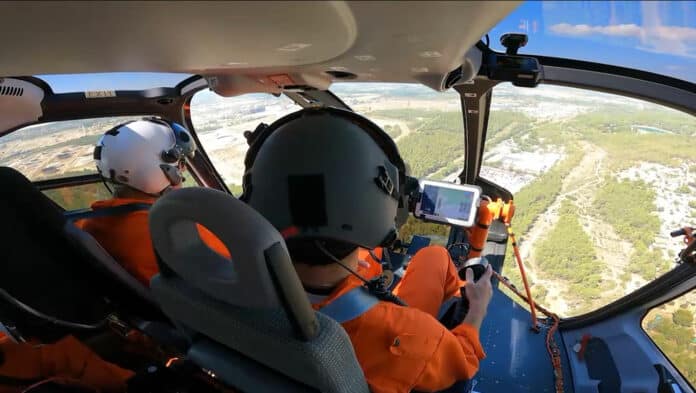Future eVTOLs (electric vertical takeoff and landing) are being praised for their potential to lower emission levels, but they could also lead the way for innovative aircraft design and flight technology. Airbus is currently experimenting with a new type of flight control system that could enable a simple and user-friendly way to fly future electric air taxis.
In preparation for a new human-machine interface (HMI), Airbus Helicopters has been using its Flightlab rotorcraft to flight test a control system that will equip its CityAirbus NextGen eVTOL advanced air mobility (AAM) aircraft. The company says the milestone represents an important step towards ushering in a new generation of electric-powered urban air mobility aircraft.
The enhanced piloting assistance provided by the electric flight control system has considerably simplified the pilot controls. This is a fresh approach where a single piloting stick replaces the three conventional pilot controls (cyclic, pedals, collective) and is able to control all aircraft axes.
With the help of this single stick, the pilot is able to perform all maneuvers, including takeoff & landing, climb, descent, acceleration, deceleration, turn, and approach.
Moreover, the single stick obviously takes up less space and offers improved visibility to the pilot. Also, the stick is combined with a revised HMI, which uses simple displays, providing a selection of information specifically tailored to eVTOLs.
After completing a successful flight test campaign, Airbus Helicopters is currently finalizing the details of its new system before conducting new tests as part of the Vertex project in partnership with Airbus UpNext. The Vertex project aims to advance autonomy even further by managing navigation and simplifying mission preparation.
“From the start, we designed this system considering every certification parameter in mind as it will be a big step forward in validating the design of our urban air mobility eVTOL, CityAirbus NextGen,” says Tomasz Krysinski, Head of Research & Innovation at Airbus Helicopters, in an official statement. “The advantage of an electric flight control system is enormous, especially when it comes to reducing pilot workload and ultimately enhancing mission safety. It is also a great example of how our demonstrators are used to mature the techno-bricks necessary to prepare the future of vertical flight.”
Airbus has been exploring how electric propulsion can drive the development of new aerial vehicles. Its FlightLab testbed is a modified H130 single-engine helicopter that helps mature new technologies for the company’s current helicopters and future fixed-wing and eVTOL designs. In September 2021, the company unveiled its first full-scale prototype of the CityAirbus NextGen.
